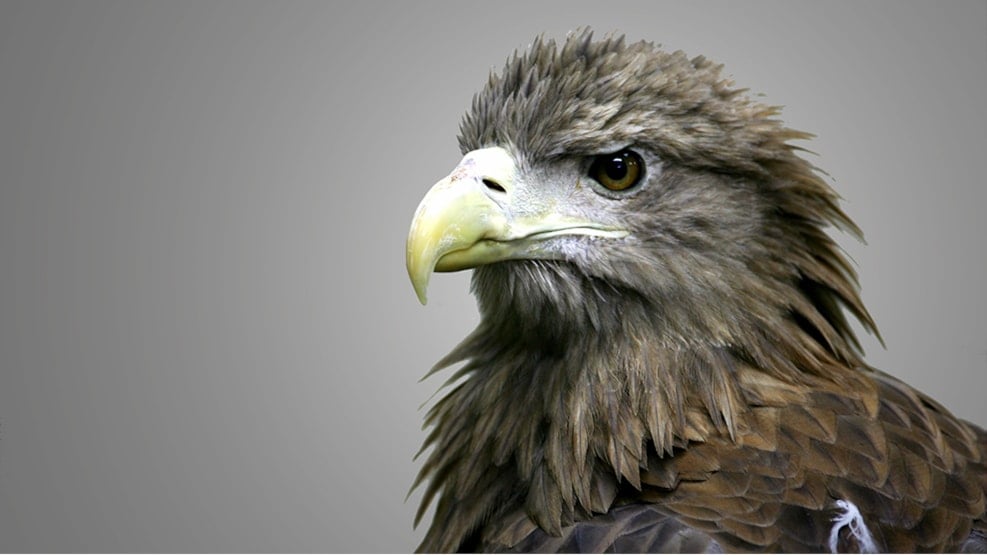
4. stop: The Red Clover Path - Eagles near Holckenhavn Fjord
The area surrounding Holckenhavn fjord is rich in extraordinary birdlife and nature.
Birdlife at Holckenhavn Fjord
Sea Eagles
From the parking lot, if you stay on the dam that crosses Holckenhavn Fjord in the winter, you can often see sea eagles perched in the old, large trees surrounding the fjord. These majestic birds wait for the right moment, then take flight to the parts of the fjord where coots have gathered in large dense flocks. Their target? An unsuspecting or unlucky coot. With their powerful and sharp talons, they snatch the prey and fly away.
The white-tailed sea eagle is a very large bird with a wingspan of up to 235 cm. Due to their impressive size, they are sometimes referred to as "flying doors". They have completely white tail feathers, a brown body, and a lighter brown head. While they don't breed in Nyborg, the sea eagles you see at the fjord stay because of the abundant food supply. Several pairs breed on Sydfyn and Langeland.
Sea Hawks
In autumn, you may be lucky enough to observe an osprey flying over the fjord in approx. 25 meters height. When the sea hawk has spotted a fish it wants to catch, it dives into the water, grabs the fish with its talons, and takes off from the water with powerful wing beats. The osprey is a formerly large bird, somewhat larger than a buzzard.
It is white on the underside and dark on the upper side and has long wings. Ospreys only breed in small numbers in Denmark, and not in Nyborg. The ospreys seen at the fjord are typically on their way to Africa, where they winter south of the Sahara.
The nature at Holckenhavn fjord
Orchids
You will encounter exciting areas with rare plants in the area along the old railway line north of Holckenhavn Fjord. Here, for example, you can find different orchids, e.g. Broad-leaved Marsh Orchid and the Early marsh-orchid. Possibly there are also hybrids of these two orchid species in the area.
The Danish orchids are all terrestrial, i.e. that they grow in the ground. Many of the exotic orchids that can be bought in shops are epiphytes, meaning that they grow on other plants/trees. All Danish orchids are protected and it is not allowed to pick them or dig them up.
Quaking-grass
Another interesting plant that grows here is quaking-grass. It has a dense tufted growth and the leaf ends are flat or slightly rolled up. The flowers have a very characteristic shape and is sometimes called pearl grass due to its shape. It is common in most of Denmark, but prefers calcareous, nutrient-poor, light-open areas.
Garden Angelica
The area also offers Garden angelica otherwise known as Wild Celery, which is a tall screen plant with many uses. However, it can very easily be confused with even very poisonous plants, so you need to be extremely careful if you want to use it.
In the Middle Ages, the plant was used as a remedy against plague.
The stems can be boiled and used as a vegetable, they can be used in combination with fruit in jams and the seeds are used as a flavoring agent in various types of alcohol.